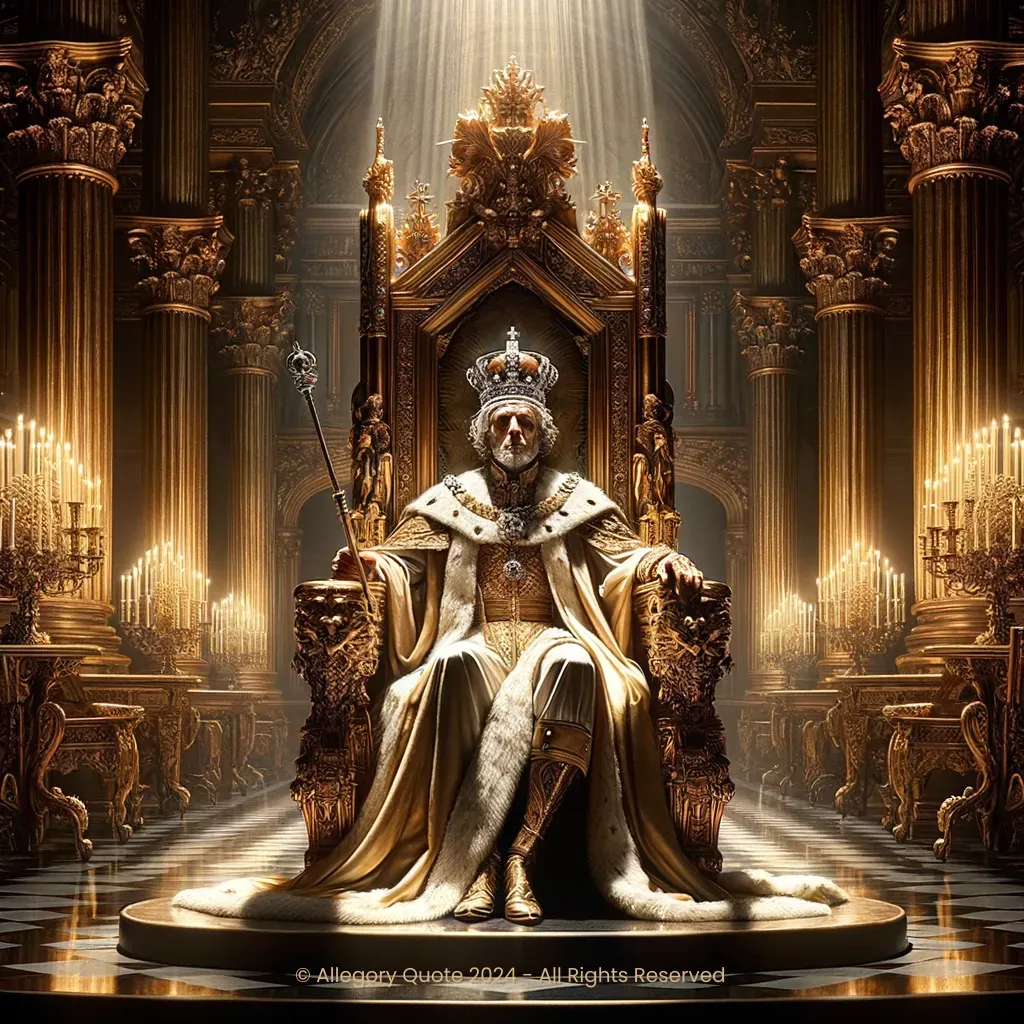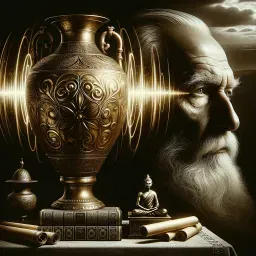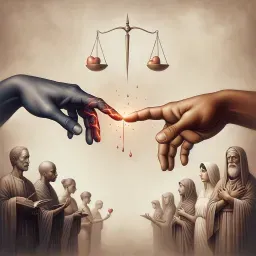Uneasy lies the head that wears a crown

0
0
0
0
- Meaning
- “Uneasy lies the head that wears a crown” suggests that those in positions of power or leadership carry a heavy burden. The phrase highlights the stresses and responsibilities that come with authority. The "crown" symbolizes leadership or kingship and the “uneasiness” refers to the constant worry and pressure that leaders face, which can disrupt their peace of mind and prevent them from finding rest or comfort.
- Allegory
- The image features a regal figure on a majestic throne, embodying the opulence and power of leadership. The weariness in the leader’s expression, highlighted by furrowed brows and heavy eyes, reflects the phrase's core message about the burdens of authority. The looming shadows around the throne symbolize the ever-present pressures and unseen challenges that leaders face. This visual representation captures the dichotomy between the lavish exterior of power and the internal struggle of the individual bearing the weight of leadership responsibilities.
- Applicability
- This phrase can be applied to any leadership role, whether in a company, a community, or a country. It reminds us that those who lead must constantly balance their decisions, manage expectations, and bear the weight of responsibility. Understanding this helps foster empathy for leaders and also serves as a cautionary reminder to be prepared for the challenges that leadership brings.
- Impact
- This phrase has had a significant impact on literature and culture, being frequently cited in discussions about the burdens of leadership. It is often used to illustrate the challenges faced by those in power, from historical figures to modern-day leaders, and remains relevant in highlighting the personal costs of great responsibility.
- Historical Context
- Shakespeare wrote "Henry IV, Part 2" around 1597–1598 during the Elizabethan era in England. The play is part of a tetralogy that depicts the historical events surrounding the reigns of Richard II, Henry IV, and Henry V. This period was marked by political intrigue and challenges to authority, which likely influenced Shakespeare's exploration of the burdens of kingship and leadership.
- Criticisms
- Criticisms of the phrase are rare but might center around its possible glorification of the challenges faced by leaders, potentially overshadowing the struggles of those not in positions of power. Additionally, some may argue that it implies a sort of sympathy for those in power which might seem misplaced in contexts where leaders have abused their authority.
- Variations
- There are no widely recognized variations of this specific phrase in different cultures. However, many cultures have their own sayings that speak to the burdens of leadership and the responsibilities that come with power. For example, in ancient Chinese philosophy, there are similar sentiments expressed about the heavy responsibilities of emperors and leaders.
-

The empty vessel makes the loudest sound.
-

The golden age is before us, not behind us.
-

Men at some time are masters of their fates.
-

What's done cannot be undone.
-

Give me my robe, put on my crown; I have immortal longings in me.
-

The devil can cite Scripture for his purpose.
-

I will wear my heart upon my sleeve for daws to peck at.
-

As merry as the day is long.
-

If you can look into the seeds of time, and say which grain will grow and which will not, speak then to me.
-

A man can die but once.
-

A friend should bear his friend's infirmities, but Brutus makes mine greater than they are.
-

If you prick us, do we not bleed?
No Comments